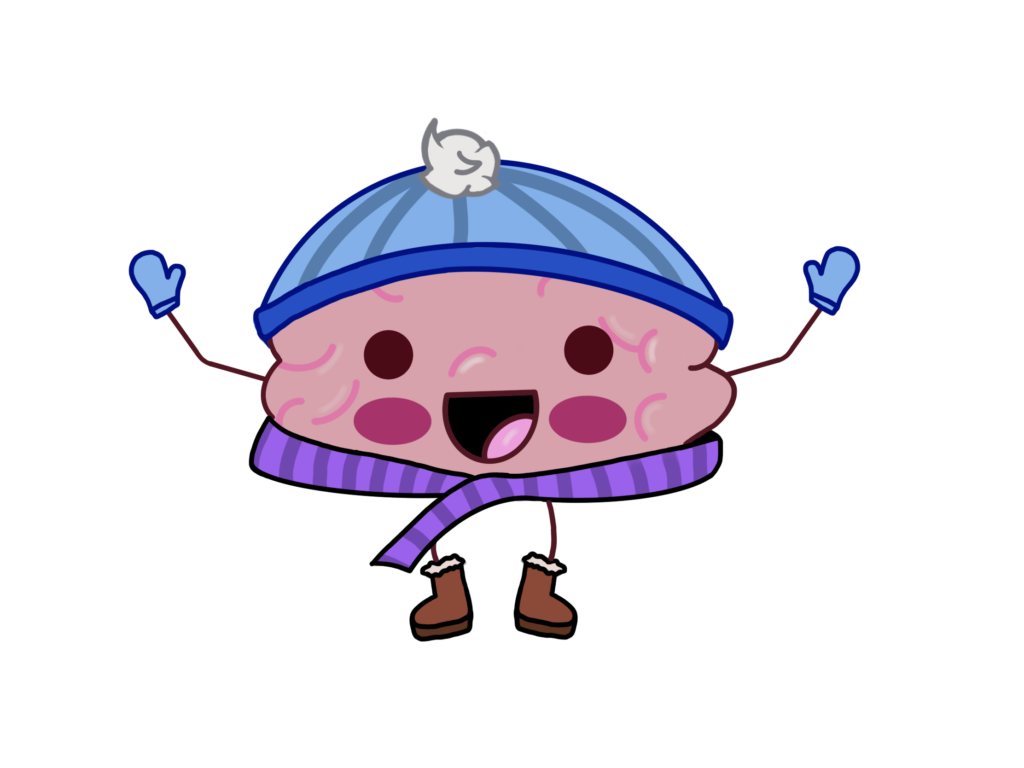
Cold months turn moods sad, individuals begin to sense a loss of interest and start to have feelings of hopelessness.
During the winter season in Michigan, which can typically last for three months, individuals start feeling depressed, and their moods don’t begin to get better until the spring.
These feelings of depression, which only occur during the cold seasons, are known as Seasonal Affective Disorder (SAD).
According to the American Psychological Association SAD is a type of depression that lasts for a season and goes away throughout the rest of the year.
Dr. Mark VanLent, the University Counselor, is familiar with the symptoms of SAD as he sees many students come down with them during the winter months on campus.
“Seasonal affective disorder is most commonly seen as depression which arises in the late fall and winter months,” VanLent said. “Symptoms include feelings of depression, sadness, reduced energy, loss of interest in activities, and feelings of helplessness and hopelessness.”
VanLent says the exact cause of SAD is unknown, but there are some factors that can greatly influence the condition such as reduced levels of sunshine and reduced levels of the brain chemical serotonin, vitamin D insufficiency, and an imbalance of the chemical melatonin.
VanLent also said college students are most susceptible to SAD, as they begin to stay in their rooms more, decreasing their activities and social interactions, and decreasing energy as the winter months get closer.
“As all Michiganders know, Michigan winters can be long, dark, cloudy, and cold,” VanLent said. “The lack of sunlight and decreased activity can cause a change in our internal clock, and can also contribute to the vitamin D deficiency, and lower levels of serotonin.”
Symptoms of SAD are the same as symptoms of depression, varying in severity and interfering with everyday life. However, a person may suffer from SAD much shorter than those with depression.
Freshman Santana Luettgen has dealt with SAD before in short periods of time. Since studying psychology she has learned that being mindful with her actions and those around her can make a big difference when dealing with SAD, along with other mindful tricks.
“Essentially just being mindful is really important,” Luettgen said. “Also, I did hear from a combination of my psychology class and my music and film class that a change of genre in music could be beneficial. It’s important for the brain to register things during these different times, even if it’s not too bright.”
SAD can be difficult to deal with no matter how long or short a person may have it. If you think you might be feeling the winter blues, here are a few suggestions from The American Psychological Association (APA), VanLent, and Luettgen.
1. Eat healthily- It’s important to keep a good and healthy diet during these mentally tough times. Food enriched with vitamin D such as fish can help, VanLent says berries and oatmeal can help as well because of the richness in folic acid.
2. Stay active- An easy way to help stay out of SAD is to stay active by working out, going ice skating, or doing other physical activities to keep your body moving. The APA suggests being proactive in planning out a schedule in advance to keep active.
3. Social engagement- Staying in contact with family and seeing friends on a regular basis can help relieve the feeling of loneliness. Being able to talk about how the winter season is affecting you and doing fun activities with friends, according to The APA, can help.
4. Daylight- Although Michigan does not receive a lot of sunlight throughout winter, all individuals should make the effort to soak in as much of it as possible when it does come out. Luettgen said for her it made all the difference when she was able to get a little bit of natural vitamin D in her body and encourages others to do the same.
5. Professional help- If things progressively become worse, it is suggested that individuals seek professional help in dealing with their mental health.
“If you find you are in need of more professional help,” VanLent said. “Please reach out to the counseling center to talk about what is going on and to help look for solutions which may be helpful for you. Medication might also be an option in more severe cases.”
The winter blues can be difficult to handle in the long, cold, and dreary months of winter. However, with the right guidance and helpful tips, the blues don’t have to bring you all the way down.
